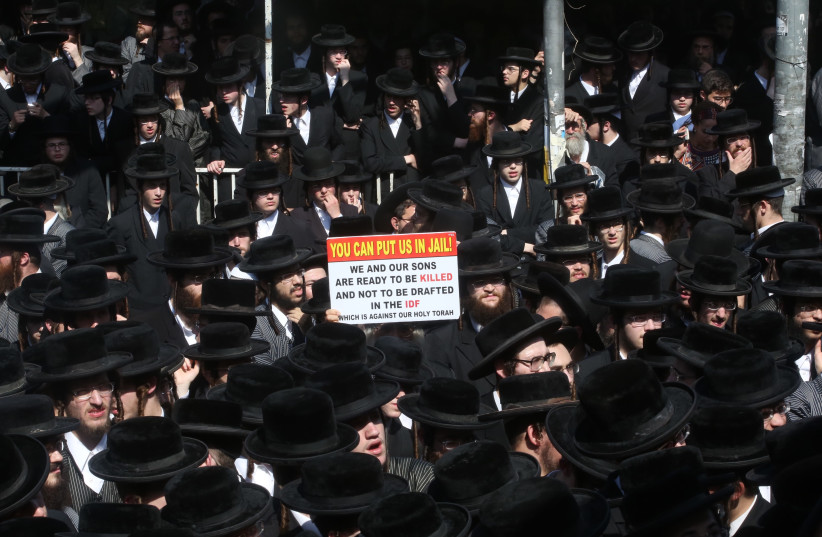Last week, the IDF published a plan to increase mandatory military service for the government’s approval. The plan instigated important dialogue which made it very clear that a draft that only applies to some of the population cannot continue. While once this could be written off as a sector issue, some Likud lawmakers have joined the call to draft haredim and Arabs. Applying an equal draft is long overdue and exacerbated by the war; these lawmakers must push forward with it.
There is an untapped 12% of the Haredi population, with over half under the age of 18, plus the Arab sector, at around 20%, whose members should be available for civil service jobs. Over the next generation, this will make a huge difference. The proposed change already has set the powder keg off on an already tense social issue.
On Tuesday evening, opposition head and Yesh Atid chairman Yair Lapid levied what can be expected from someone in his position: Complete outrage, and a plea to war cabinet minister Benny Gantz and observer Gadi Eisenkot not to object to the plan.
“It cannot be that two former chiefs of staff will stand by while hundreds of thousands of young haredim that the army needs remain exempt,” Lapid said.

But the call didn’t come just from the opposition head, which can be shelved as political. On Tuesday, IDF Chief of Staff Herzi Halevi said that conscription should apply to all of Israeli society.
“In these challenging times, one thing is very clear – everyone should do their part to protect our home. This is a different time, and prior realities should be reexamined,” he said. “We are currently promoting immediate enlistment solutions to fill our ranks in light of the ongoing fighting. More of this will be required in the future.”
That’s from the outside. From inside the coalition, from the Likud itself, Diaspora Affairs Minister Amichai Chikli and MKs Dan Illouz and Moshe Saada called on Prime Minister Benjamin Netanyahu to “expand the circle of those who carry the burden,” that a reality where some groups carry it more than others can no longer continue.
They suggested that the bill be temporary and that in a year, a law would be passed to integrate the other groups: haredim and Arabs.
Fresh nuance and sincerity
Two notable figures who have brought fresh nuance and sincerity to this old debate are Shas MKs Ya’acov Margi (Welfare and Social Affairs Minister) and Moshe Arbel (Interior Minister). Both are IDF veterans. Margi presented a plan of his own, in which those who study in yeshivas will continue to do so, but those who are not should serve.
Arbel has tried to promote haredi enlistment, sending an encouraging letter to the CEO of Netzah Yehuda, an organization that helps haredi soldiers serve in combat units, a move that angered Shas chairman Arye Deri.
That the sectoral differences have the power to tear Israeli society into small pieces is not new. What is new now and presents a unique opportunity, is the fact that this suggested bill is so wide-ranging and puts so much more strain on those already serving, that Likud MKs have drawn a line in the sand.
The fact that this is coming from inside Netanyahu’s party could hold enough weight to shift the social contracts this country has in a new, more productive way. We now have a unique opportunity, one that has the potential to change this country and society for the better.
Kol yisrael areivim zeh la’zeh (All are responsible for one another) is not just a phrase. Adopting a mandatory draft plan that is socially equal is the direct actionable manifestation of it, and it is the duty of this people’s government to bring it forward.
Halevi said: “We have an historic opportunity to expand the IDF’s recruitment sources” when it is sorely needed. Some Likud MKs have started to realize it too - they must push it forward, otherwise, the schism will only deepen, putting us at an even greater security risk.
